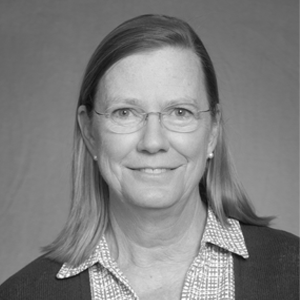If you’ve been tapped to become your facility’s SQF Practitioner and you’re staring down the requirements with no formal food safety background, you’re not alone. Many QA managers, production team members, and even facility owners find themselves in this exact situation—suddenly responsible for leading an SQF-certified food safety program without the benefit of a long compliance résumé.
Here’s the truth most don’t hear early enough: the SQF Code doesn’t reward tenure. It rewards preparedness. SQF Code Edition 9 requires proof of knowledge, not proof of years. That means if you’re willing to learn, you can become the Practitioner your company needs—without second-guessing your background or waiting to “earn your stripes” over time.
This article will walk you through exactly what the SQF Code demands, why the myth of “experience first” is holding new leaders back, and how Registrar Corp makes qualification not just possible—but confidently achievable with training that aligns directly with audit expectations.
What the SQF Code Actually Requires
SQF Code Edition 9 is direct and specific about the role of the Practitioner. Contrary to industry myths, it doesn’t require a resume filled with executive titles or decades of quality assurance leadership. The code outlines three essential qualifications:
- Demonstrated competency in HACCP principles
- A working understanding of how to implement and maintain the SQF System
- Familiarity with the regulatory requirements relevant to your facility’s product and operations
These are skill-based, not status-based. They are measurable, documentable, and trainable. That’s the fundamental shift many newcomers overlook. They assume they’ll be disqualified without extensive experience, when in fact, all the SQF Code is looking for is proof of comprehension and capability.
If you’re able to show documentation that supports these qualifications—such as training certificates, system plans, and internal audits—and speak clearly about how your food safety system operates, you’ve already met the code’s intent.
Still unsure what qualifies as proper documentation or acceptable training? Our guide to the SQF Code Edition 9 training expectations decodes the language and outlines exactly what auditors look for.
Breaking the Myth of Experience-Only Qualification
Many facilities still operate under a misguided assumption: that only those with the longest tenure or the highest job title are suitable for the Practitioner role. But when certification auditors arrive, their focus isn’t on your resume. It’s on your readiness. They evaluate:
- Whether you’ve completed a HACCP training that aligns with CODEX standards
- Whether you can describe the strengths, risks, and controls in your current food safety system
- Whether you know how to respond to a deviation or potential hazard and document the resolution
Auditors are trained to assess preparedness, not pedigree. If you’re structured, trained, and confident in your system—regardless of prior job history—you’re positioned to pass.
This is why many facilities successfully transition first-time practitioners into the role. What matters is not whether you’ve done it before, but whether you’ve been trained to do it now.
If you want to see how this plays out in audits, this article explains what auditors actually accept as proof. It explains how structured learning and audit-ready documentation give new practitioners real credibility.
Registrar Corp’s Proven Path for New Practitioners
Registrar Corp’s SQF Practitioner training path wasn’t built for career QA executives—it was designed for people exactly like you: capable, committed professionals who are stepping into compliance leadership for the first time.
The training bundle is mapped directly to SQF Code Edition 9 and includes:
- HACCP Certification based on CODEX principles, as required by the code
- SQF System training modules that explain how to develop and manage a compliant program
- Downloadable templates, SOP examples, and tools to help you build documentation for audit readiness
What sets Registrar Corp apart is the integration of education with application. You’re not left to translate theory into practice—we give you frameworks, checklists, and guidance designed by regulatory professionals and food safety experts who’ve sat on both sides of the audit table.
If you’re still comparing programs, this breakdown highlights which certifications auditors value most.
Or, if you’re still trying to decide whether a single course can satisfy both the HACCP and SQF training needs, this article details the certification built to do just that.
Final Word: Start Where You Are—Get Qualified Fast
If you’re second-guessing whether you belong in the Practitioner role, it’s probably because you’ve been told food safety is only for seasoned veterans. But the SQF Code tells a different story.
What matters isn’t where you’ve been—it’s what you’ve learned, what you can prove, and how you apply it. Structured training fills the gap between where you are now and where you need to be.
When you take the right course, you walk away with:
- Official documentation that aligns with SQF Code expectations
- Practical understanding of HACCP principles and system maintenance
- Confidence in your ability to lead a food safety program and speak to it during audits
Registrar Corp’s program was built around that transformation. We’ve trained over 30,000 professionals, many of whom were new to food safety and compliance. And we didn’t just help them check a box—we helped them succeed in a role that matters.
Step into the SQF role with confidence—Registrar Corp shows you how.








